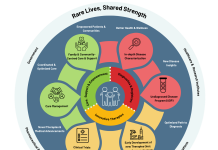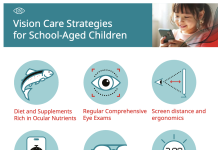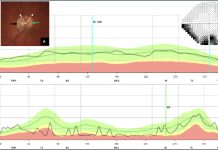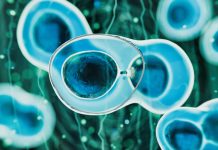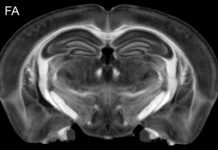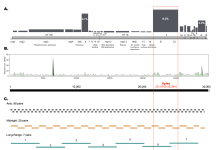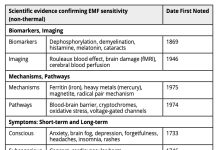Open Access Government produces compelling and informative news, publications, eBooks, and academic research articles for the public and private sector looking at health, diseases & conditions, workplace, research & innovation, digital transformation, government policy, environment, agriculture, energy, transport and more.
Home 2025
Archives
Resilience as a metric: Why midlife interventions matter more than ever
Dr Rebecca Crews and Heather Makar from Renue By Science advocate for changing health policy to prioritize proactive resilience maintenance over reactive disease treatment, especially during midlife. They emphasize the benefits of NAD+ biology as a measurable intervention framework.
Connecting Canada for rare disease care and research
The Canadian Rare Disease Network (CRDN) is uniting care, research, and lived experience to improve the rare disease journey in Canada.
Fueling bone regeneration by rewriting immune metabolism
Chima V. Maduka, DVM, MS, PhD, and Christopher H. Contag, PhD, provide insights on tuning immunometabolism to resolve inflammation and promote repair at the bone–biomaterial interface.
The integration of artificial intelligence into personalized medicine
Priya Hays, CEO and Science Writer at Hays Documentation Specialists, LLC, discusses the integration of Artificial Intelligence (AI) into personalized medicine (PM), highlighting its potential to enhance healthcare, particularly in genomic medicine and precision oncology.
Adolescent polysubstance use: Time for a new public health approach
Ronan Fleury and Mary Cannon discuss the growing trend of polysubstance use among adolescents and highlight the need for a new public health strategy that reflects the complexities of adolescent substance use.
Screen time and myopia: Options for children’s vision in a digital world
With mounting evidence linking screen time to myopic progression, interest is growing in developing behavioral and nutritional vision care strategies to promote long-term ocular health in the digital age.
Co-occurring disorders and the need for a research network
The treatment of patients with pain and co-occurring disorders presents a significant knowledge gap that necessitates a strong infrastructure for conducting representative clinical trials. Norm Buckley from the Michael G. DeGroote Institute for Pain Research & Care explains.
Removing systemic barriers to register overseas trained doctors in New Zealand while preventing their...
Dr Charles Mpofu and Dr Dianne Wepa discuss removing systemic barriers for overseas-trained doctors registering in New Zealand while also addressing mental health challenges.
Vitamin a toxicity: “Too much of a good thing”
Fredric Gorin, Sarah Torres, and Pamela J. Lein discuss the implications of vitamin A supplementation during a recent measles outbreak in the US. They explain that a common misconception – that vitamin A supplementation can prevent the transmission of measles among unvaccinated individuals – can result in vitamin A toxicity.
OCT: A practical tool for diagnosing buried optic disc drusen
Dr Adèle Ehongo addresses the diagnosis of buried optic disc drusen (BODD) using Optical Coherence Tomography (OCT) and the importance of correlating visual field abnormalities and OCT data, especially in normal tension glaucoma, to distinguish it from Optic Disc Drusen (ODD).
Bone marrow transplantation and haplotyping
Brian Tait, chief scientific officer, Haplomic Technologies Pty Ltd, explores the clinical benefits of haplotyping in single-chromosome sequencing and unrelated donor bone marrow transplantation (HSCT).
The promise of antimicrobial peptides
Brian P. Lazzaro, Liberty Hyde Bailey Professor at Cornell University, highlights the promise of antimicrobial peptides (AMPs) as powerful agents in the ongoing battle against antibiotic resistance.
3D microscopic whole brain neurodegenerative MRI
This article by G. Allan Johnson, Ph.D., focuses on advanced MRI techniques for studying neurodegenerative diseases, exploring the challenges of screening therapies for conditions like Alzheimer’s and Parkinson’s, and highlighting the promising research conducted at Duke University.
Cancer care through molecular diagnostics: Addressing papillary thyroid cancer
Oliver Bathe from the University of Calgary and Qualisure Diagnostics, walks us through addressing the surge in papillary thyroid cancer incidence by refining cancer care through molecular diagnostics.
Proceedings of the Libby, Montana asbestos education & outreach retreat
Jean C. Pfau discusses the history and health implications of the vermiculite mine in Libby, Montana, and the establishment of the Center for Asbestos-Related Disease (CARD), which offers vital clinical services for affected individuals. Additionally, a retreat in June 2025 allowed experts to share research findings on asbestos exposure.
Ovarian phenotypes impact fertility and pregnancy outcomes
In this ovarian health focus, Adjunct Assistant Professor Zhongwei Huang, Dr. Paula Benny and Ms. Hui Wen Tam explore how ovarian phenotypes affect ovarian function and lifespan, leading to complications in pregnancy outcomes.
What can we learn from millions of viral genome sequences?
David Ussery and Pratul Agarwal, Professors in the Department of Physiological Sciences at Oklahoma State University, discuss their work using high-performance computing for the analysis of millions of viral genome sequences.
Advancing value-based healthcare (VBHC) through collaborative innovation
The UK NHS’s are all seeking sustainable, outcomes-driven care, adopting VBHC with its focus on better patients outcomes relative to cost: an approach underpinning the recent 10 year plan for England. A joint project between an International Biopharmaceutical Company and Swansea University explored effective collaboration for successful VBHC implementation.
Confirming Electromagnetic Hypersensitivity (EHS)
Michael Bevington of Electrosensitivity UK advocates for recognising the health and environmental impacts of human-made electromagnetic fields (EMFs), citing both historical and legal acknowledgement as well as scientific research linking EMFs to various symptoms.
ProteCoat™: Non-toxic antimicrobial coating for safer hospitals and public spaces
ProteCoat™ is a non-toxic antimicrobial coating technology developed by Reactive Surfaces aimed at reducing healthcare-associated infections (HAIs) in hospitals and public spaces.


